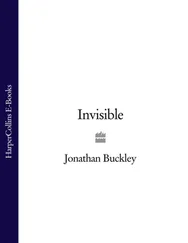1 ...8 9 10 12 13 14 ...29 ‘Why don’t you two go to the park?’ said Mrs Beckwith.
‘We’ll come for you in an hour,’ said his mother. ‘Shall we see you by the pond?’
Megan submitted the bag to her mother without saying anything, and the idea occurred to Alexander that he should take her to the Doodlebug House. ‘It’s wonderful,’ he told her as they entered the park. ‘It’s like being in a big well, or a castle. The walls are as high as that tree, on all four sides, and there’s nothing in the middle of them.’
‘How far is it?’ Megan asked.
‘Can’t tell you,’ said Alexander. ‘But we won’t be late back. Promise.’
Megan looked at the tree to which Alexander had pointed. She made her mouth and eyes slightly smaller, as though she doubted what he said, but then she followed him to the Doodlebug House.
‘No one except me has ever been in here,’ he told her. He pulled up a corner of the corrugated iron sheet so that she could crawl in. ‘You mustn’t tell anyone,’ he said.
Megan stood on a small rectangle of clear floor in the hallway, swatting the dust from her dress. Rising behind her, the walls seemed higher than ever, and the movement of the clouds that were edging over the Doodlebug House made the bricks seem to teeter. Alexander began to climb the joist to his window, but was stopped by Megan’s voice. ‘This is a pile of rubbish, Eck,’ she said, looking about her as if someone who had annoyed her was hiding in the ruin. ‘It’s nothing like a castle.’
He could not think what to say. He rested one foot on the fringe of floor that stuck out from the wall and held out a hand, though she was a long way below him. ‘Look from up here,’ he said.
‘Don’t be stupid, Eck,’ Megan told him. ‘It’s dangerous. I’m going.’ She licked a finger and turned her attention to a mark on her dress.
Despondent and resentful, he followed her away from the Doodlebug House. ‘You won’t tell anyone?’ he pleaded, when they were back in the park.
‘Of course not,’ she said.
‘Promise?’ he persisted.
‘God, Eck,’ she snapped. ‘Don’t be so boring. Why would I tell anyone? There’s nothing to tell.’
Alexander returned to the Doodlebug House many times afterwards, and the echo of Megan’s voice was always there. He could no more rid the atmosphere of her irritation than he could get rid of the smell of cats. With his arms crossed he would sit on the lip of the bath and scan the shell of the building, as if waiting with diminishing hope for a friend to answer an accusation. ‘A pile of rubbish,’ he heard her say, and he could no longer bring himself to see it differently. Finally there came the day on which he found that he was in a place that felt like a copy of the Doodlebug House, and he resolved that he would never visit it again.
He would always remember something of the evening of the day on which he left the Doodlebug House. Sitting on the grass in the garden, he closed his eyes and brought to mind the things that he had abandoned. He could see the slivers of grime between the rods of the washboard and the lustrous disc of white porcelain on top of the bath’s single tap. He could see the rake of shadows on the wall above the upstairs fireplace and the stiff blisters of paint on the back door. He could even taste the bitter air of the Doodlebug House. It was as if he were lying on his cradle of boards, and the Doodlebug House was again a place that belonged only to him.
When Alexander came out of his daydream a red admiral was closing its wings on a dandelion beside him. He remembered this, and his father looking at him from the kitchen door. The light through the branches of the tree in next door’s garden made his father’s face vanish under a pattern of brilliant ovals. His mother’s voice came from very far away inside the house, saying something he could not hear, and his father went to her.
One morning towards the end of 1951, not long after Churchill’s election, Alexander heard that the Doodlebug House was being demolished. In the afternoon he watched the wrecking ball sink into the wall below his lookout window. The wall gave way like a hand making a catch, he would always remember.
Alexander was sitting in the corner of the garden where the bindweed came over the fence and the fat tongues of dock leaves stuck out from under the nettles. Holding the stalk as he had seen his mother hold the stem of a glass, Alexander turned the white trumpet of a flower half a circle one way, half a circle back.
‘He’s a contented wee soul,’ he heard Mrs Beckwith remark. ‘If you ask me, he’s got a real talent for calmness.’
‘You think so?’ asked his mother, standing alongside her.
‘I don’t see what you’re fussing about, Irene. I’d be grateful if I were you. Not a minute’s peace with Megan.’
‘Nothing but peace with this one,’ said his mother, and she looked at him as if he were a mystifying but precious-looking object they had unearthed from the lawn. ‘Not like the others, are we, my love?’ With the toe of her sandals she dug gently at his ribs, he would remember. ‘Not a boisterous boy, are we?’ She threaded a hand under Mrs Beckwith’s elbow. ‘You wouldn’t credit how long this one can go without moving a muscle,’ she said. ‘Meditating MacIndoe we should have called him.’
‘A genius at hide and seek, I’ll bet,’ said Mrs Beckwith, and she kissed him on the top of his head.
A week later he was taken to see Dr Levine, in a room that he would remember for its smell of cold rubber and for its chairs, which were made of metal pipes and had red seats that glued to his skin. Dr Levine was a short, stout man with silver hair and a silver moustache that was striped with two yellow stains below his nostrils. His eyes were small and pale brown, and he looked at Alexander over the lenses of his half-moon glasses.
‘What exactly is the difficulty, Mrs MacIndoe?’ he asked.
‘It’s not a difficulty, as such,’ she replied.
‘Not a difficulty, as such,’ the doctor responded, as though repeating a sentence in a foreign language.
‘No.’
‘Then what precisely would it be?’
‘A feeling that something’s not quite right,’ she tentatively explained.
‘Could you be more specific, Mrs MacIndoe?’ asked the doctor. ‘Could we pin this something down?’
‘He doesn’t seem to have much energy, for a boy,’ she stated.
‘For a boy?’ smiled Dr Levine, putting down the gold-hooped black pen with which he had been toying.
‘For a child.’
‘He eats well? Sleeps well?’ asked Dr Levine.
‘Yes. I think so.’
Dr Levine rose from his chair and leaned on the edge of his desk, gazing down at Alexander. ‘Do you eat well, Alexander?’ he asked, and narrowed his eyes as if there was some trick to the question. ‘Do you sleep well?’ he added, before Alexander could speak.
‘Perfectly,’ said Alexander.
‘Perfectly,’ repeated Dr Levine, and he smiled at the floor as he placed a hand on Alexander’s brow. His skin was cold and very soft, like a balloon that has lost some air. ‘Give me your hands,’ he said. He put the tips of his fingers under the boy’s and bent forward to inspect the fingernails. ‘Look up,’ he said. He prodded the flesh around Alexander’s eyes, then took hold of his lashes and tugged at his eyelids. ‘Nothing to worry ourselves about so far,’ commented Dr Levine, reaching behind his back and lifting a small, flat stick.
‘I’m not worried.’
‘I’m glad to hear it,’ replied Dr Levine, and he pressed his lips together, making his moustache bulge outwards. He placed the smooth dry wood on Alexander’s tongue and peered along it; the whites of the doctor’s eyes, Alexander noted, were the colour of the wax of his nightlight in the morning.
Читать дальше











